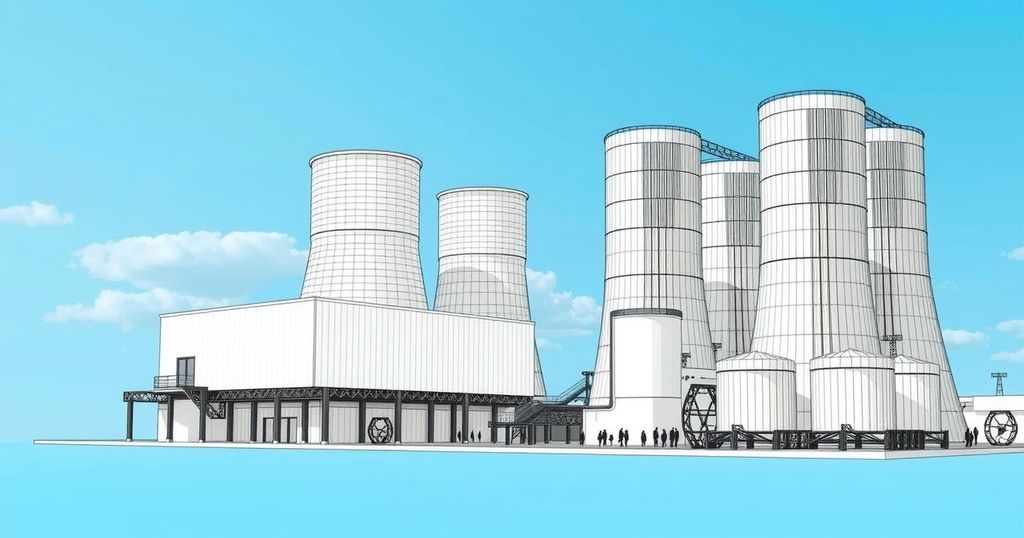Ghana has selected the U.S. and China as vendors for its first nuclear power plants, with NuScale Power constructing Small Modular Reactors and China National Nuclear Corporation building a Large Reactor. A framework agreement has been signed, and environmental data is being collected for site selection. The initiative aims to enhance energy security and reduce reliance on fossil fuels by integrating one gigawatt of nuclear power into the grid by 2034.
Ghana has designated the United States and China as the preferred vendors for its inaugural nuclear power plants, although formal contracts remain unsigned. The U.S.-based NuScale Power, in collaboration with Regnum Technology Group and Japanese partners, plans to construct Small Modular Reactors (SMRs). Concurrently, the China National Nuclear Corporation will be responsible for building a large reactor (LR) designed to produce 1,200 megawatts of energy.
Dr. Stephen Yamoah, Executive Director of Nuclear Power Ghana, revealed this information during a media event in Accra. The SMRs will consist of 12 modules, each generating 77 megawatts, yielding a combined total of 924 megawatts. The LR will utilize a Build, Operate, and Transfer (BOT) financial model, alongside local equity involvement, while the SMRs will be financed via Public-Private Partnerships (PPP).
A preliminary framework agreement with the chosen vendors has been signed, and experts are currently focused on collecting environmental and oceanic data to finalize the locations for the plants. Mr. Archibold Buah-Kwofi, Acting Director of the Nuclear Power Institute, emphasized the necessity for stable and affordable electricity to foster national development, given that Ghana’s energy sources are predominantly fossil fuels and hydropower, with renewables accounting for a mere one percent.
He advocated for the expedited adoption of nuclear energy to secure the nation’s energy future, highlighting the need for thorough regulatory frameworks and a skilled workforce. The integration of nuclear energy is anticipated to diminish dependence on fossil fuels, address climate change, and bolster energy security, with the government aiming to incorporate one gigawatt of nuclear power into the grid by 2034.
The plants are expected to support industrial development, counteract the decline in hydropower resources, lower industrial tariffs, facilitate desalination, and create additional employment opportunities. The selection of vendors followed a comprehensive review process, beginning with 16 initial responses to the government’s request. A technical committee, under the auspices of the Energy Ministry, shortlisted five candidates before arriving at the final selection.
Ghana’s aspiration for nuclear power, initially interrupted by a coup in the 1960s, regained momentum in 2006 with the support of the International Atomic Energy Agency (IAEA). The country is among several African nations engaging in nuclear energy exploration to address power shortages and stimulate economic growth.
In conclusion, Ghana’s initiative to partner with the United States and China in developing its first nuclear power plants marks a significant step towards enhancing the nation’s energy security. Through the implementation of Small Modular Reactors and a Large Reactor, Ghana aims to transition from reliance on fossil fuels to stable and sustainable energy sources, supporting industrial growth and job creation. The ambitious plan, backed by international collaboration, seeks to improve the overall energy mix by integrating nuclear power into the grid by 2034.
Original Source: www.myjoyonline.com




